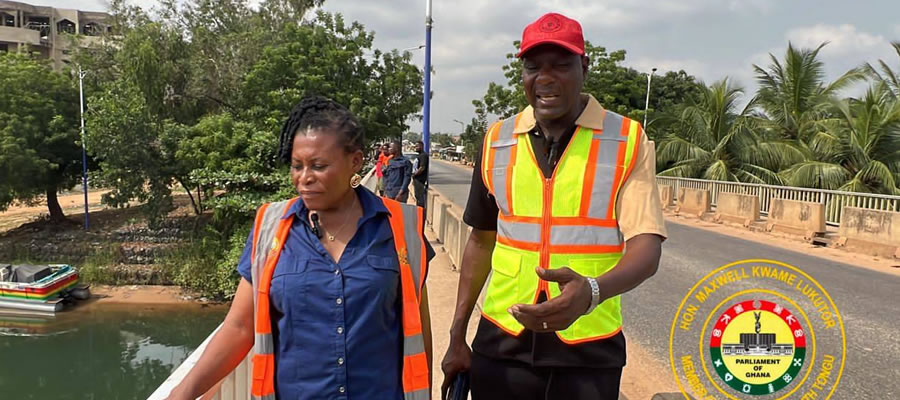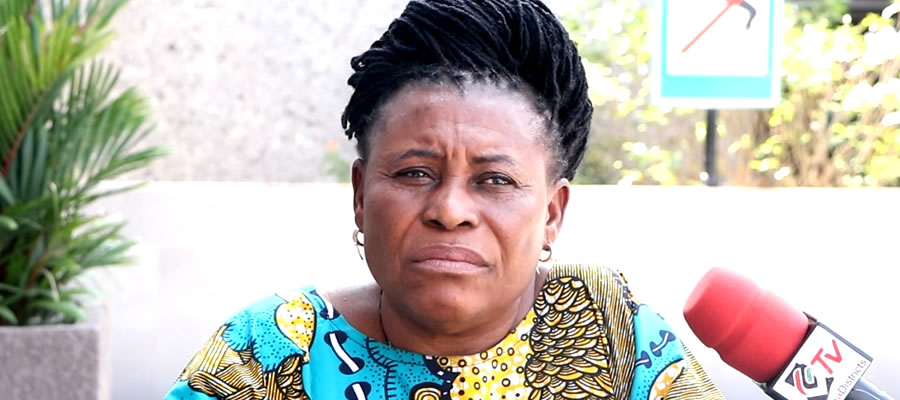

Distribution of Socio-Economic Facilities
The most deprived areas in terms of the distribution of health facilities in the district are the Gamenu and Dorkploame areas. Although the physical structures are provided in these communities, they are not manned. The poor in these areas therefore travel long distances to places sometimes outside the district such as Akatsi and Ada Foah for medical care.
The Agave Afedume Area Council is the most deprived in terms of the provision of potable water. This could be attributed to the high salinity of the water table, the long distance of the communities to the main pipeline, and the sparse population of the area. As a result of the difficulty in getting water women and children spend a lot of time fetching water reducing the productive time that they have to spend at school, farm, market etc.
The major sources of water are streams, rivers, boreholes and wells, but with the completion of the first phase of the South Eastern Districts Water Project, a number of communities, including Sogakofe, have started enjoying pipe-borne water. The Volta Region Rural Water Supply and Sanitation Programme, aided by the District Assembly, is supporting this sector. The programme is currently drilling a number of boreholes with hand-pumps for various communities.
There are 136 educational institutions in the district made up of 24 kindergartens, 74 primary schools and 36 junior secondary schools.There is also one private vocational/technical institute in the district. The District Directorate of Education, in conjunction with the District Assembly, has implemented a number of measures to procure equipment. Although educational facilities are evenly spread in the district the same cannot be said of the staffing of these facilities. Some of the schools in the deprived areas have one or two teachers manning schools meant for six or more teachers. These teachers are often over loaded and this affects their output and eventually the performance of the children and their future. Teachers and other workers refuse posting to these deprived areas due to lack of certain basic facilities such as good water, roads, accommodation, electricity etc.
The road conditions in the district are relatively good. The main Accra-Aflao and Accra-Keta roads pass through the district, linking the major settlements. The District Assembly, in conjunction with the Department of Feeder Roads, is working hard to upgrade the feeder roads that link other parts of the district.
In terms of the condition of roads in the district, the worst roads are found in certain portions of the Sogakope Area Council around Agorgbe, Anaosukope, and Dedo. The Northern portions of the Dabala Area Council are also deprived in terms of road network. The poor nature of roads put a lot of hardship on the poor. Women and children carry heavy loads over long distances to the market centres as drivers refuse to ply roads that are poor. It also makes it difficult for them to access basic social services such as health, education etc.
Accessibility
Accessibility is explained as the ease with which an individual can move from an origin to a destination to enjoy a service and return. The concept in based on time spent and distance covered in the course of travelling. It also considers the nature of the existing road network and whatever medium of transport may be available. Hence the basic assumption underlying accessibility analysis is that travelling is affected by the conditions of transportation channels used, time taken and distance covered. In the South Tongu District major roads i.e. Accra Aflao, Dabala Junction Keta roads and feeder roads were considered in the surface accessibility analysis. In all 5 services were considered in the accessibility mapping. These are, agriculture extension service, market, health, education and financial institution.
Accessibility to Agriculture Information Centre
The district has one agriculture information centre at Dabala. This centre is to be the major source of information to farmers in the district. Since the facility is located in the Dabala Area Council; there is high accessibility to the facility. Farmers who visit the market could conveniently visit the centre for the information they require. The sub district most deprived in terms of accessibility to this facility is the Agave Afedume Area Council, followed by Larve Area Council. The inability of farmers to get the needed information to improve their farming eventually affects their output and eventually compounds their poverty level.
Accessibility to Hospital and Health Centres
The most deprived areas in terms of accessibility to hospital and health centres is the Agave Afedume Area Council. There is only one health centre situated at Dordoekope which is at the extreme end of the district. The poor who cannot have access to the hospital or health centre therefore resort to traditional medicine and report to the health centre only when they have complications. This eventually cost them more and further aggravates their level of poverty.
Accessibility to Markets
The two major markets in the district are found at Dabala and Sogakope. Farmers bring their produce to the markets to sell and purchase other essential commodities from the market. However, as a result of the poor nature of roads in the Larve Area council most farmers are unable to get to the market with their produce on market days during raining seasons. They are therefore unable to purchase very essential items like fuel and fish for their families. Vehicles plying routes charge exorbitantly leaving no options to the farmers than to pay. It is therefore important to provide moderate intermediate means of transport to the poor to enable them visit their farms regularly and transport their farm produce to the market at a reduced cost.
Accessibility to Education Facilities
Larve and Agave Afedume Area Councils have low access to secondary, technical and vocational facilities. The northeastern part of Dabala also has low access to those facilities. As a result of this, most people refuse to further the education of their children due to the high cost involved in either sending these children to the boarding or hostel institutions. Since the level of education influences the kind of work one does in the future, the children of the poor in the district do not have any meaningful jobs to do and this further aggravates the level of poverty in the district. Those who are unable to further their education migrate to the big towns such as Sogakope and Accra to either learn trade or engage in hawking. It is therefore important for the district to put in place schemes to support the needy children in the district.
Accessibility to Financial Facilities
Timely access to credit especially to farmers is very critical. Most of the farmers in the very deprived areas have low access to banking services. They therefore resort to borrowing from moneylenders at a very high interest rate. The poor use most of their profit in paying for the high interest charge when there are favourable weather conditions. Their plight worsens when the weather fails and as a result are enable to pay for the money borrowed.
Electricity
Electricity appears the most dominant energy source in the district. All the big towns in the district are connected to the national grid. Rural communities, which have not been connected are also taking advantage of the Self Help Electrification Project and are getting connected. Efforts are also made to provide communities in very remote areas with either a solar or wind mill system. The district is connected to the national grid. Booth single and three phase electricity is supplied in the district. The power is transmitted from the Sogakope sub station. There are 50 transformers of various capacities and load rating which step down power for distribution within 30 communities.
Markets
There is only one big market in the district at Dabala. The District Assembly has provided sheds and other facilities to the market. More however, needs to be done to make this market a modern one. The Sogakope market is also being upgraded.
Telecommunication
There is no line telephone facility in the district. All the major GSM services are available in the district. There is one Internet facility available; the District Assembly is putting measures in place to create the necessary conditions for the private sector to expand Internet facilities in the district.
Water Transport
The lower section of the Volta River provides a suitable water transport system along the south- eastern section of the District. The Ghana Highway Authority runs water transport services to link settlements along the lower Volta up to Akuse in Manya Krobo District. Private boats and canoes also operate alongside the launches. The constraints facing water transportation in the district include
Date Created : 11/23/2017 3:57:50 AM









 facebook
facebook
 X
X
 Youtube
Youtube
 instagram
instagram
 +233 593 831 280
+233 593 831 280 0800 430 430
0800 430 430 GPS: GE-231-4383
GPS: GE-231-4383 info@ghanadistricts.com
info@ghanadistricts.com Box GP1044, Accra, Ghana
Box GP1044, Accra, Ghana